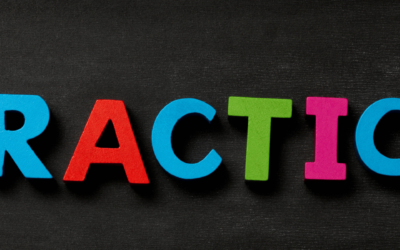You're probably aware that excelling in assessment tests can significantly impact your career trajectory, but have you ever wondered how to navigate the maze of different test types effectively? "Write Your Way to Success: Assessment Test Samples Decoded" breaks down cognitive ability tests, personality assessments, and skill-based evaluations, offering practical strategies to enhance your preparation. Imagine having expert tips on structured study schedules, time management, and mental rehearsal techniques at your fingertips. Curious about how these methods can boost your confidence and performance? Let's explore the key elements that can pave your way to success.
Understanding Assessment Tests
When it comes to understanding assessment tests, it's essential to grasp their purpose and structure. These tests aim to evaluate your skills, knowledge, and competencies within specific areas. They help educators, employers, and other stakeholders make informed decisions about your abilities. Whether you're applying for a job, seeking admission to an educational program, or aiming for certification, understanding these tests can significantly impact your success.
First, you should know that assessment tests are designed to be objective. They measure your performance based on standardized criteria, ensuring a fair evaluation for all participants. This objectivity helps eliminate biases, providing a clear picture of where you stand.
Next, focus on the structure of these tests. Typically, they consist of multiple-choice questions, essays, practical tasks, or a combination of these formats. Each section assesses different aspects, such as your analytical skills, problem-solving abilities, and theoretical knowledge. Knowing the structure ahead of time allows you to prepare more effectively, targeting your study efforts where they matter most.
Understanding the purpose and structure of assessment tests empowers you to approach them with confidence and clarity, increasing your chances of achieving your goals.
Types of Assessment Tests
When exploring types of assessment tests, you'll encounter cognitive ability tests, personality assessments, and skill-based evaluations.
Cognitive tests measure your reasoning and problem-solving skills, while personality assessments reveal traits and behavioral tendencies.
Skill-based evaluations focus on specific competencies relevant to particular tasks or jobs.
Cognitive Ability Tests
Cognitive ability tests, a cornerstone of many assessment processes, measure your mental faculties and problem-solving skills. These tests evaluate how well you process information, reason, and apply logic.
When you're taking a cognitive ability test, expect to tackle a range of challenges, from numerical reasoning to verbal comprehension.
You'll often encounter questions designed to assess your mathematical skills, like solving equations or interpreting data from charts. Don't be surprised if you also face puzzles that test your spatial awareness, such as visualizing how objects fit together.
These tests might also include sequences or patterns that require you to predict the next item.
It's not just about getting the right answer; how quickly you can think on your feet matters too. Time constraints are common, so practice working efficiently.
You might find online practice tests helpful in honing your speed and accuracy.
Personality Assessments
While cognitive ability tests measure your mental agility and problem-solving skills, personality assessments focus on understanding your behavioral traits and tendencies. These tests help employers gauge how well you'd fit into their company culture and interact with colleagues.
They're not about right or wrong answers but rather about painting a picture of your personality.
You'll encounter various types of personality assessments, such as the Myers-Briggs Type Indicator (MBTI), which categorizes you into one of 16 personality types. Another common test is the Big Five Personality Traits, which examines five broad dimensions: openness, conscientiousness, extraversion, agreeableness, and neuroticism.
These tests aim to uncover your work style, emotional responses, and preferences in different scenarios.
When taking a personality assessment, be honest and consistent. Employers use these tests to see if your natural tendencies align with the job requirements and team dynamics.
If you're naturally introverted, don't force yourself to appear outgoing; authenticity is key.
Skill-Based Evaluations
Skill-based evaluations frequently play a crucial role in the hiring process, as they measure your practical abilities and hands-on expertise. These tests provide employers with a clear picture of how well you can perform specific job-related tasks.
They're designed to assess your proficiency in areas directly related to the job you're applying for, ensuring that you possess the necessary skills to succeed.
When you encounter a skill-based test, you might be asked to complete tasks that mimic real-world challenges. For instance, if you're applying for a coding position, you could be given a coding problem to solve. If you're in the marketing field, you might need to create a mock campaign.
These evaluations can be timed, adding an extra layer of pressure to simulate actual working conditions.
To prepare for these assessments, practice is key. Brush up on the core skills required for the job and familiarize yourself with common industry tools and software.
Online platforms offer practice tests that can help you get a feel for what to expect. Remember, the more you practice, the more confident you'll feel when it's time to showcase your skills.
Sample Questions Explained
When tackling sample questions, you need to understand the underlying concepts they test. Sample questions are designed to gauge your competency in specific areas. By breaking down these questions, you can identify the skills and knowledge they're assessing. This ensures you don't just memorize answers but truly comprehend the material.
Start by carefully reading the question. Look for keywords that highlight the main idea or concept. Pay attention to any instructions or specific conditions. These elements often provide clues about what's being tested. For instance, a math problem might focus on algebraic manipulation or geometric reasoning, while a reading comprehension question could target your ability to identify main ideas or infer meanings.
Next, analyze the answer choices. Even incorrect options can reveal important insights. They might represent common misconceptions or errors you should avoid. By understanding why each choice is right or wrong, you deepen your grasp of the subject matter.
Lastly, practice explaining your reasoning. Articulating why you chose a particular answer reinforces your understanding and helps you spot any gaps in your knowledge.
Expert Tips and Strategies
Experts often emphasize the importance of tailored strategies when preparing for assessment tests. You need to understand the test format and types of questions you'll face. Start by reviewing sample questions and identifying patterns. This way, you can predict what to expect and focus your study efforts effectively.
Time management is crucial. Practice under timed conditions to simulate the real test environment. This helps you pace yourself and avoid spending too much time on any one question. Use tools like timers and stopwatches to enhance your time-awareness.
Develop a study plan that breaks down topics into manageable chunks. Allocate specific times for each subject area and stick to your schedule. Consistency is key, so make a habit of daily review sessions.
Leverage resources like study guides, online courses, and practice tests. These materials provide valuable insights and can highlight areas needing improvement. Don't hesitate to seek help from tutors or join study groups for additional support.
Boosting Test Confidence
Harnessing the power of confidence can significantly impact your performance on assessment tests. When you approach a test with the belief that you can succeed, you're more likely to stay calm, think clearly, and recall information effectively.
Start by preparing thoroughly; familiarity with the material naturally boosts confidence. Create a study schedule and stick to it, ensuring you cover all necessary topics well before the test date.
Visualization is another powerful tool. Spend a few minutes each day imagining yourself successfully completing the test. Picture every detail: the test environment, the questions, and most importantly, the feelings of assurance and competence. This mental rehearsal can reduce anxiety and create a positive mindset.
Lastly, practice positive self-talk. Replace any negative thoughts with affirmations like, "I've prepared well, and I can handle this." Your internal dialogue shapes your confidence, so make it encouraging and constructive.
Common Pitfalls to Avoid
Navigating assessment tests can be tricky, especially if you fall into common pitfalls. One major trap isn't reading instructions thoroughly. It's easy to assume you know what's required, but missing a crucial detail can cost you points. Always take the time to read and understand every directive.
Another common mistake is poor time management. You might spend too much time on a single question, leaving others unanswered. Practice pacing yourself to ensure you have enough time to tackle every section of the test.
Overcomplicating answers is another pitfall. You might think that longer, more detailed responses will impress, but clarity and conciseness often score higher. Stick to what's asked and avoid unnecessary elaboration.
Some candidates also neglect to review their answers. Rushing through the test without double-checking increases the risk of simple errors. Always allocate a few minutes at the end to go over your responses.
Resources for Practice
When preparing for assessment tests, having the right resources can make all the difference. You'll want to start by finding high-quality sample tests. Many educational websites offer free practice tests that mimic the format and difficulty of actual exams. Websites like Khan Academy and Quizlet provide tailored exercises that can help you master specific skills.
Don't overlook books specifically designed for test preparation. Guides from publishers like Kaplan and The Princeton Review are packed with practice questions, strategies, and detailed explanations. These books often include online resources and practice tests, giving you a comprehensive prep package.
Online forums and study groups can also be invaluable. Platforms like Reddit and various Facebook groups have communities where you can share resources, ask questions, and get tips from others who've already taken the tests. It's a great way to get insider knowledge and moral support.
Lastly, consider investing in a tutor or an online course. Websites like Coursera and Udemy offer courses on specific subjects and test-taking strategies. A tutor can provide personalized guidance, helping you pinpoint and overcome your weaknesses.
Conclusion
You've got the tools to ace any assessment test. By understanding different test types, practicing sample questions, and applying expert strategies, you're well on your way to success. Remember to manage your time effectively, stay confident, and avoid common pitfalls. With consistent practice and the right resources, you'll not only improve your test performance but also boost your overall confidence. Now, go ahead and write your way to success!






0 Comments